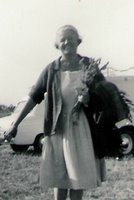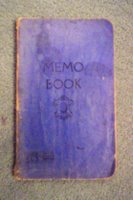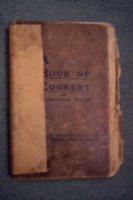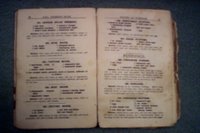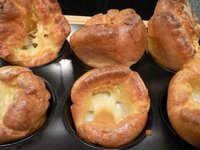My standby Jewish cookery book (OK, my only Jewish cookery book - The Complete International Jewish Cookbook by Evelyn Rose) says about cholent that "this ancient Sabbath concoction is best defined as 'any dish that has the stamina to stand up to 24 hours in the oven' ". She also describes the origins of cholent:
The cholent ritual was an important part of Jewish life in the Polish villages of the nineteenth century. Each family would mark its pot with chalk, and tie it with string before sending it to be cooked in the baker's oven. It was a tragedy indeed if a child should drop the hot dish on the way home, and the whole village would give a spoonful to make up the family's meal. In those cholents, potatoes and 'kasha' (groats) were the main ingredients, with a good meat bone to help the flavour. But the richer communities, where kosher meat was more readily available, would put in a good chunk of boneless brisket or top rib. Jews who came to Britain in the latter years of the nineteenth century continued to make their cholent just as they had done in 'der heim', putting in butter beans or barley for variety, and topping the dish with a fluffy 'knaidel' or dumpling; they found it an ideal way of feeding their large families in the days when a joint, as we know it today, was beyond the finance of most immigrants. The cholent cooked to perfection in the coal oven, as it had done in the wood ovens of of Russia and Poland.Ingredients (Serves 6)
1 lb butter (dried lima) beans (canned beans work fine if you prefer)
3 lb piece of boneless brisket
Salt,pepper, paprika and ginger
2 tablespoons chicken fat; or 2 oz (¼ cup) margarine
3 sliced onions
1 clove garlic, crushed (I omit the garlic)
1 bayleaf
6 peeled whole potatoes (I prefer them cut into chunks)
Method
Soak the butter (lima) beans in water to cover overnight, drain well.
Rub the brisket with the salt, pepper, paprika and ginger, then brown quickly in the fat or margarine, together with the onions and garlic.
Put in a deep earthenware casserole (a hot-pot dish or Dutch oven is ideal).
Add the bayleaf, drained soaked beans, and the potatoes or barley.
Cover with boiling water, cover the dish and put in oven at Gas Mk 5 / 400 deg F / 200 deg C for 30 minutes or until contents start to bubble.
Turn heat down to Gas Mk ½ / 250 deg F / 130 deg C and leave overnight.
Serve for lunch the next day.
As our gas oven has been behaving erratically recently (putting itself out, but for some unknown reason only when Tevye cooks Sunday lunch - so far it has behaved itself perfectly for me!) I'm going to try using the crockpot instead. I'm thinking that an hour or so on high followed by a long, slow simmer on low should work nicely. [Edited to add: The crockpot did the job fine. I checked it in the morning, added some extra seasoning and adjusted the temperature (my slow cooker cooks ridiculously slowly on low, so I boosted it with an extra couple of hours on high). I also thickened the liquid by adding a little cornflour dissolved in cold water.]
The end result is meat that is falling-apart tender, with potatoes and beans so thoroughly soaked in the juices that they turn a deep orange colour right through. More winter comfort food!
Mustn't forget to put those beans in to soak tonight ...

